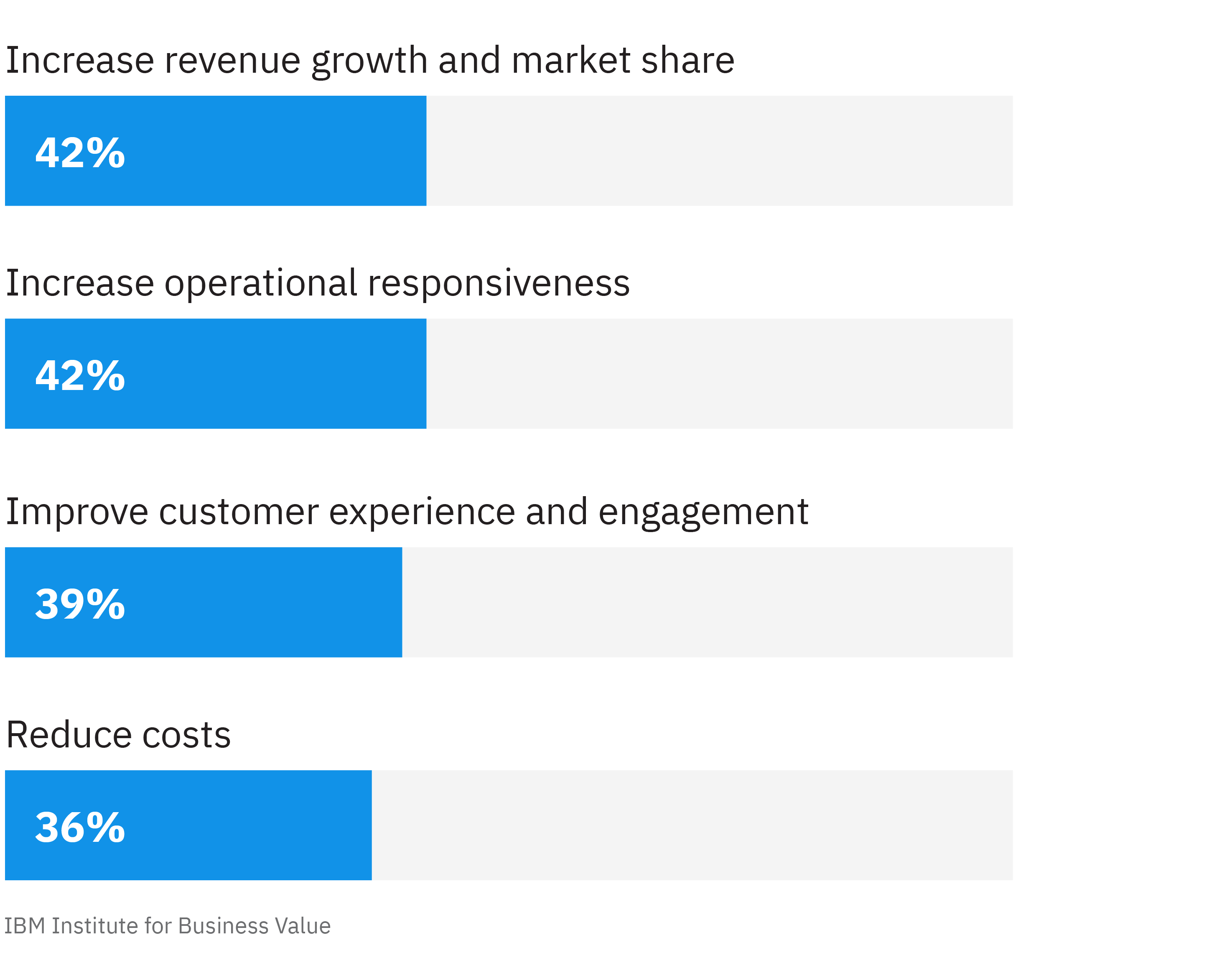About cookies on this site Our websites require some cookies to function properly (required). In addition, other cookies may be used with your consent to analyze site usage, improve the user experience and for advertising. For more information, please review your options. By visiting our website, you agree to our processing of information as described in IBM’sprivacy statement. To provide a smooth navigation, your cookie preferences will be shared across the IBM web domains listed here.
Executing intelligent workflows through automation
Intelligent automation can help chemicals, petroleum, and industrial products companies become more adaptable.
Intelligent automation can help chemicals, petroleum, and industrial products companies become more adaptable.
COVID-19, dwarfing previous disruptions, is making organizations rethink how to work, design, construct, source, operate, and maintain. The impact of COVID-19 varies from moderate to severe on different natural resources and industrials industries, depending on the downstream customer demand, workforce availability, supply-side shocks, and regulatory environment.
Industrial original equipment manufacturers (OEMs) have experienced massive decline in new product demand and a slowdown in the services business. The metals and mining industry has been cautious. The oil and gas industry’s demand erosion occurring at the same time as its production disagreements has resulted in both the oversupply of resources and the subsequent oil price collapse. In chemicals, demand and supply fluctuations have driven the scale of manufacturing production down and, in some cases, forced an alteration of product portfolio. Case in point: Demand by the medical community for personal protective equipment.
Intelligent automation helps drive profitable growth, while reducing risks.
The pandemic has highlighted that operations can be severely affected by unexpected events, whether severe weather disruptions, political risks, or even the recent Russia-OPEC oil price war. This requires an operating environment that can execute fast, be innovative, and create more resilient operations across the enterprise. Businesses that apply intelligent automation (IA) to build end-to-end visibility, real-time insights, and predictability into the value chain will likely weather supply chain challenges and customer service disruptions—and thrive in tomorrow’s recovering market.
Artificial intelligence (AI) and automation—together they become intelligent automation—alter the way humans and machines interact. Intelligent automation changes how people analyze data, make decisions, and perform tasks and activities within a workflow or system. By applying intelligent automation, manufacturing companies can gain significant value.
The automation landscape
The IBM Institute for Business Value, in collaboration with Oxford Economics, conducted a comprehensive study to discover more about the effects of intelligent automation initiatives today and in the near future. 1,500 executives in 21 industries were asked a broad range of questions related to automation investments, priorities, benefits, and impact. In this report, we share the insights and strategies of the 90 chemicals, petroleum, and industrial products respondents, representing 22 countries.
According to the executives surveyed, profitability enhancement, operational responsiveness, and customer experience are driving technology expenditure decisions. Investments in digital initiatives deliver value to their organizations, with the highest benefit in the areas of workforce management, customer experiences, and products and services.
Tech expectations: 4 key business objectives are driving technology investments
 Automation can enhance the customer experience by enabling more rapid and effective responses based on new data-driven insights. With AI, organizations can integrate external data so that marketers can identify prospects and understand customers individually—but all at scale.
Automation can enhance the customer experience by enabling more rapid and effective responses based on new data-driven insights. With AI, organizations can integrate external data so that marketers can identify prospects and understand customers individually—but all at scale.
In addition, automation improves productivity and allows employees more time to focus on critical customer priorities by shifting certain more mundane tasks away from humans. For example, AI-powered chatbots or agent assistants can manage routine customer requests and route the more difficult service items to customer service representatives.
34% of executives expect intelligent machines to perform departmental work in 3 years.
With the right data, many activities—relating to both customers and routine business processes—can be automated. Predictive sales modeling and the provision of product or service data, descriptions, and use cases can help sales close deals.
Read the full report to see how intelligent automation can help chemicals, petroleum, and industrial products organizations optimize and customize workflows to deliver more business value.
Bookmark this report
Share
Meet the authors
Viswanath Krishnan, Global Solutions ExecutiveGaurav Garg, Business Development Executive and Associate Partner, IBM Consulting
Spencer Lin, Global CFO Research Lead, IBM Institute for Business Value
Download report translations
Originally published 24 February 2021
How can IBM help you?
How can IBM help you?
You might also like





